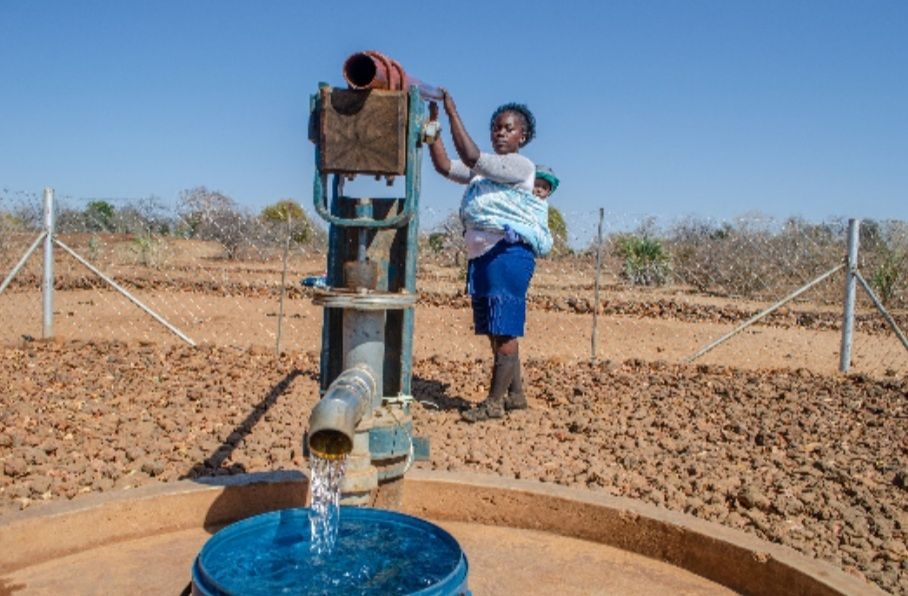How a US-funded initiative is helping Zimbabwe’s climate-vulnerable communities

Thembelihle Mhlanga
Hwange, Lupane, and Binga—three districts in Zimbabwe’s Matabeleland North—are among the most climate-vulnerable regions in the country.
These largely rural areas, home to 336,000 people, face the harsh realities of changing weather patterns: crop failure, severe droughts, and floods. For decades, these challenges have stunted agricultural productivity, leaving communities grappling with hunger and poverty.
But amid this adversity, a groundbreaking initiative—Amalima Loko—is providing a beacon of hope. Launched in 2020 with a $75 million investment from the US Agency for International Development (USAID), the project is helping these communities combat climate change, improve food security, and rebuild their livelihoods. Focused on sustainable agriculture, water management, and community empowerment, Amalima Loko has become a model for climate adaptation in one of Zimbabwe’s most vulnerable regions.
The project spans 62 wards across the three districts, working with local farmers to train them in water conservation, soil health, and modern farming techniques. “Amalima Loko,” which combines the Ndebele word “Amalima” (meaning teamwork) and the Tonga word “Loko” (meaning true), symbolizes the collaborative spirit of the initiative.
A key component of the project is its focus on lead farmers—selected individuals who receive intensive training and pass on their skills to others. By 2024, 2,628 lead farmers, including 1,577 women, have been trained in water harvesting, soil conservation, and labor-saving techniques, ensuring that the knowledge spreads and empowers communities. The project also established 96 demonstration plots across the districts, showcasing the benefits of conservation farming and smart agricultural practices.
In addition to promoting sustainable farming, Amalima Loko has introduced innovative irrigation systems, enabling farmers to grow a range of horticultural crops, from cabbage to butternut, in previously arid areas. These projects not only boost food security but also create income-generating opportunities, benefiting the wider community.
Access to water is another major focus of the project, particularly in the drought-prone regions. In Hwange, 60 boreholes have been rehabilitated, and 26 new ones drilled, benefiting over 18,000 people. Similarly, in Lupane, 60 boreholes were revived, providing water to 11,000 people. The impact of these efforts has been profound. “The borehole rehabilitation has been a lifesaver for us,” says Siphiwe Ncube from Hwange. “We no longer have to walk long distances for water, and our livestock have a steady supply.”
To further enhance water security, the project has established Water Harvesting and Irrigation Schemes (WIRS) in all three districts, enabling communities to store and use water efficiently during dry spells. These schemes have been instrumental in improving crop yields, particularly for drought-tolerant crops and agroforestry practices. “Our crop yields have increased, and we’re better able to withstand erratic weather patterns,” says Tendai Muzamba, a lead farmer from Binga.
The project’s success is evident in the widespread adoption of sustainable farming practices. In Binga, 76% of farmers are now using conservation farming techniques, with similar success in Hwange and Lupane, where 87% of farmers have adopted these methods. The results speak for themselves: improved food security, better resilience to climate shocks, and greater community cohesion.
The impact of Amalima Loko goes beyond agriculture. The initiative is transforming lives by providing the tools and knowledge for long-term resilience. “By working closely with local leaders and farmers, we’ve tailored our interventions to their needs, ensuring sustainability for years to come,” says Keith Moyo, Communications Officer for CFNA.
As the project continues to evolve, USAID and CFNA are exploring ways to scale up these successful interventions and replicate them in other vulnerable regions across Zimbabwe and beyond. The Amalima Loko model proves that through community-driven, climate-smart solutions, resilience can be built—even in the face of adversity.





